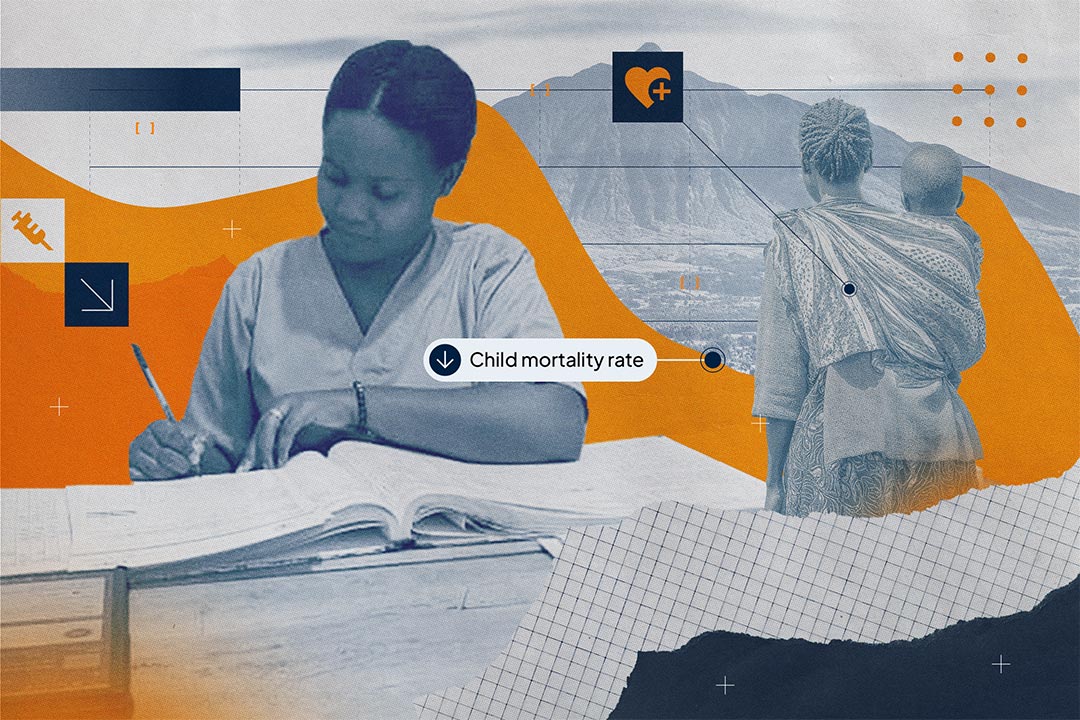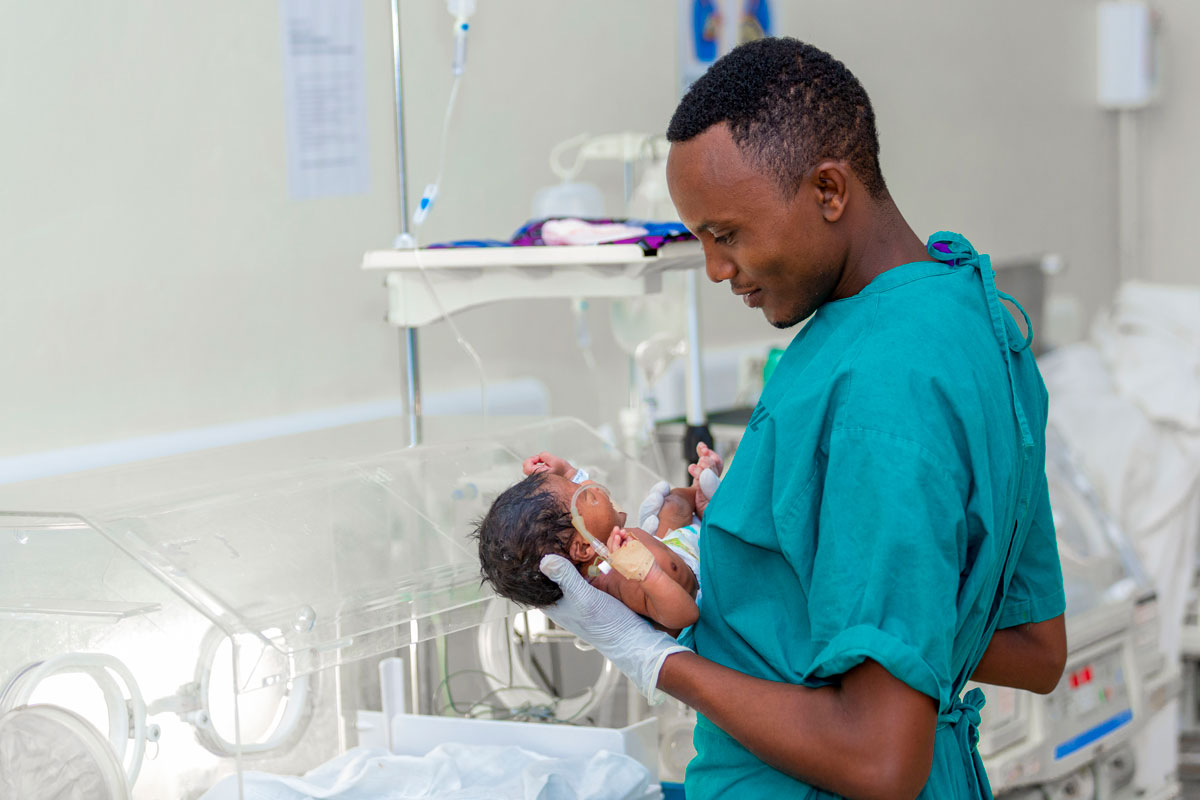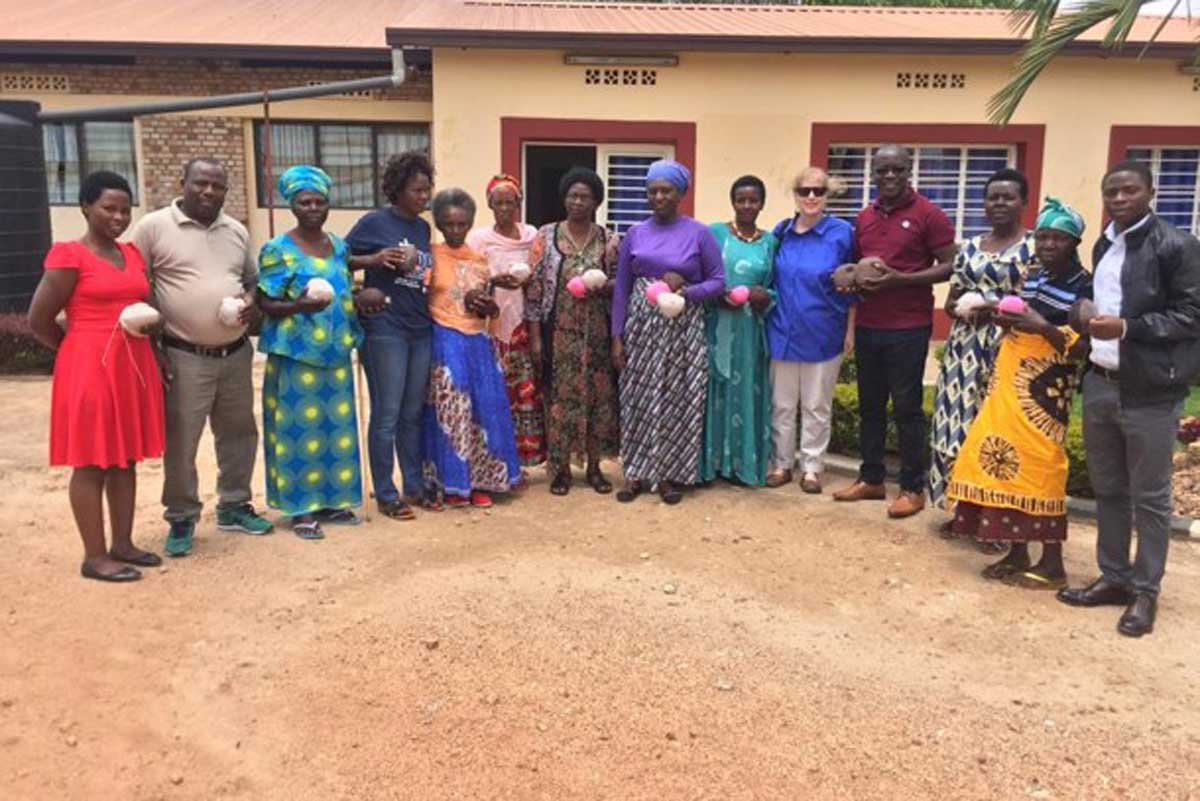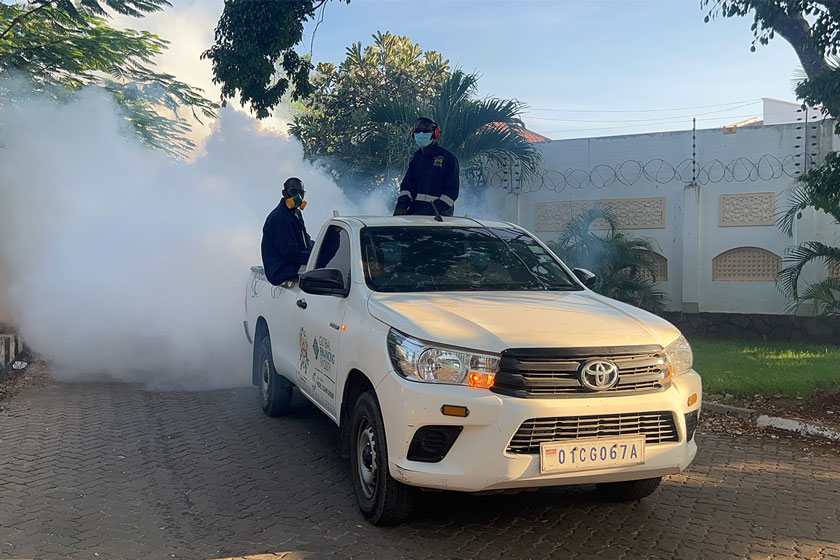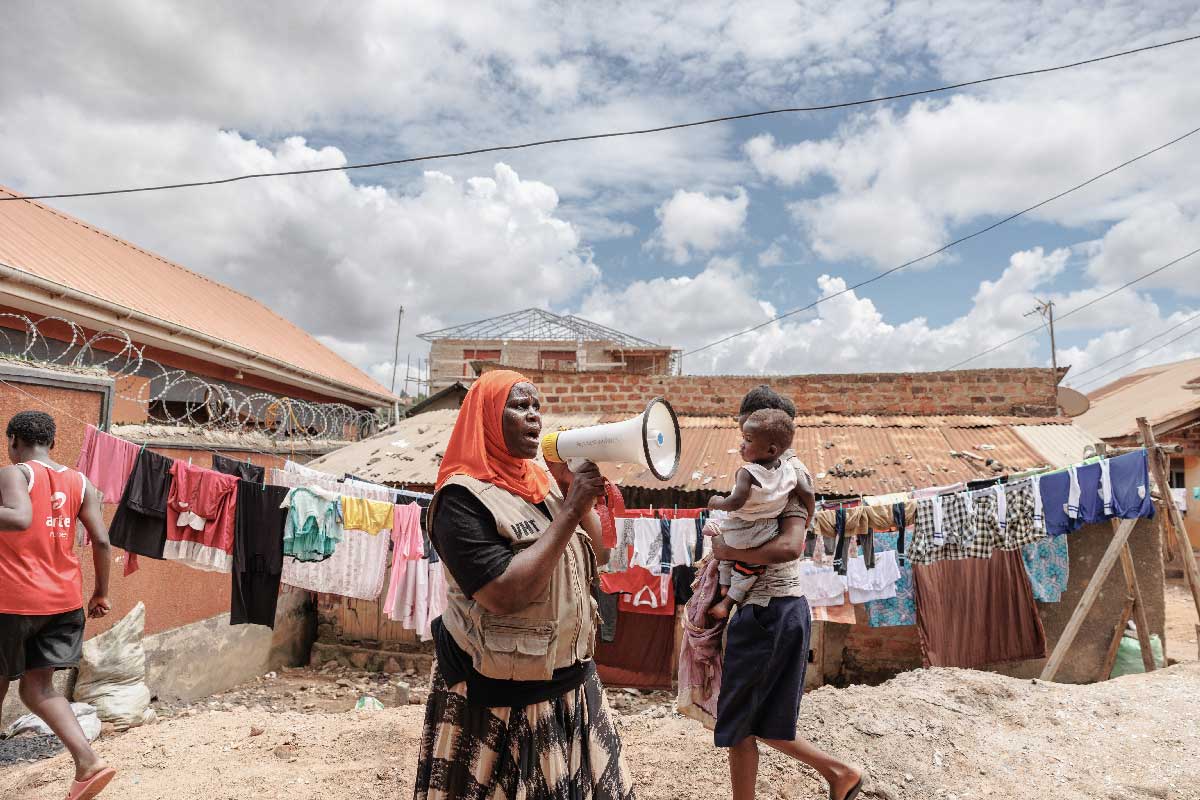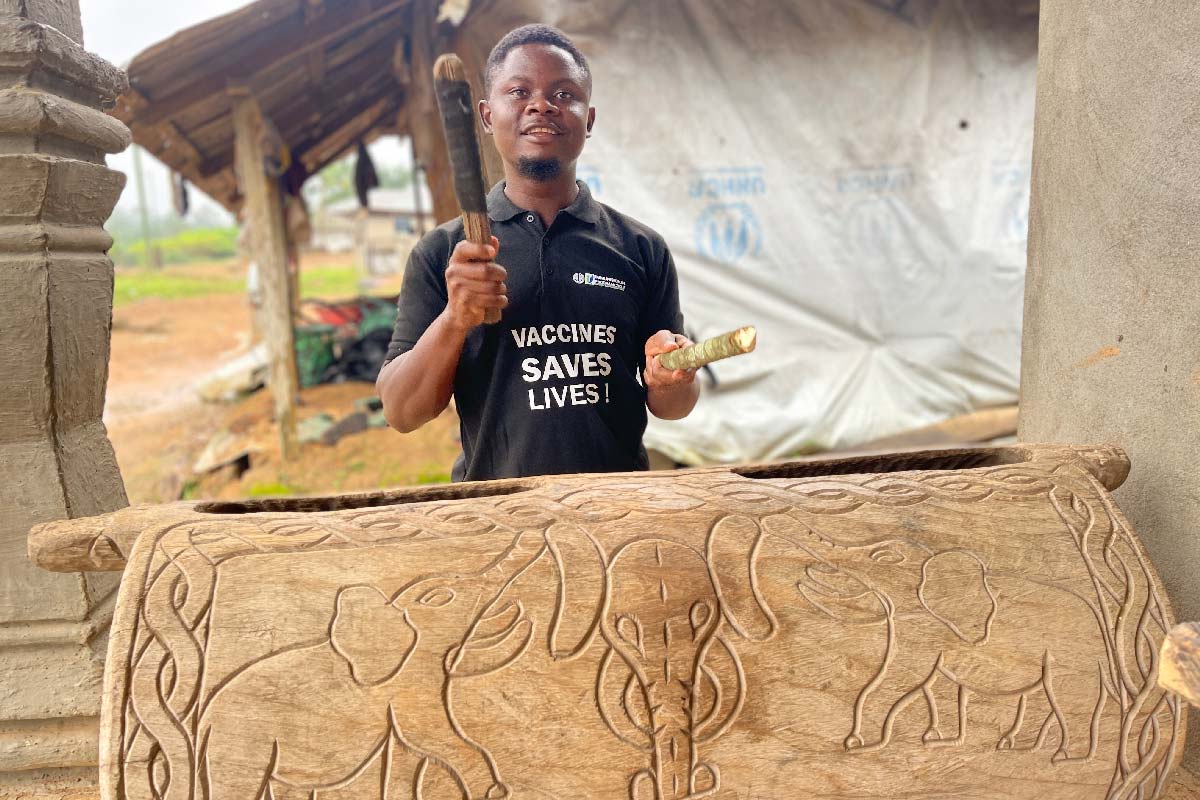Rewarding, but unremunerated: life as a Rwandan community health worker
The work “brings me joy,” Leonille Nikuze says – but it would be easier to concentrate on supporting families and saving lives if the job paid enough to live on.
- 15 October 2024
- 4 min read
- by Hudson Kuteesa
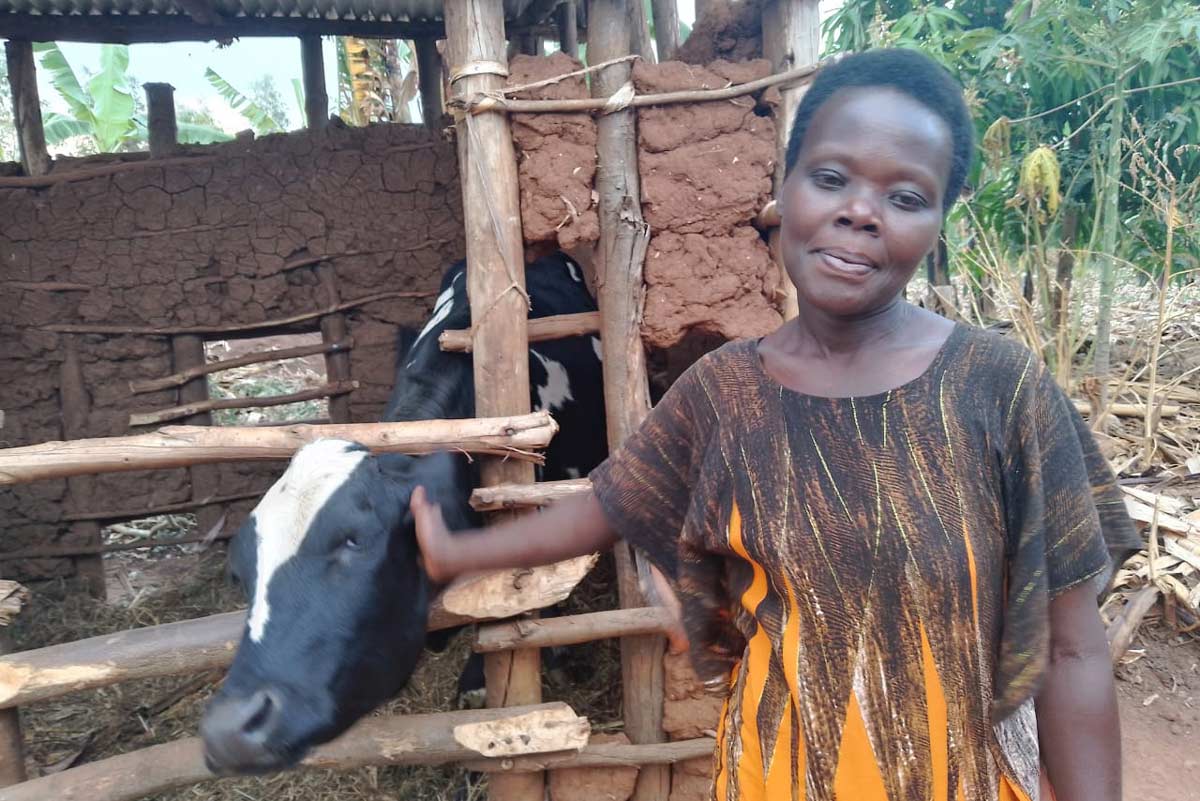
It’s 11:00 in Rusera village in Rwanda’s Kayonza District, and Leonille Nikuze, 45, is shelling peanuts in the compound around her house. Nearby, a couple of youngsters are busy pounding cassava leaves, the core ingredient for isombe, a Rwandan stew.
It’s a normal day for Nikuze, but, as she is a community health worker (CHW), ‘normal’ also means staying ready for the unexpected. Her routine is often interrupted by neighbours seeking medical attention, whether for a sick child or an adult suffering from malaria.
“People trusted me and chose me, believing I was capable. I felt I was capable too. I love this work. It's rewarding, even if we're not paid. Helping a sick child and seeing them healthy and playing the next day brings me joy.”
- Leonille Nikuze, Community Health Worker
“We are almost like full doctors now, with huge experience,” Nikuze jokes, before she explains that CHWs do not only treat common illnesses like malaria, but also play a role in Rwanda’s routine immunisation programme.
Rwanda’s routine immunisation schedule features vaccines for diseases such as diphtheria, tetanus, and pertussis, along with newer vaccines for pneumonia and diarrhoea, which have significantly reduced cases of such illnesses among children.
Nikuze’s role in this national project includes sensitising parents about the importance of vaccines, following up on children’s immunisation schedules, as well as providing nutritional advice, measuring children’s growth and ensuring parents know how to take care of their children.
“Every child must be immunised after birth to protect them from diseases,” she underscores.
As part of her work as a CHW, she is responsible for over 75 households in her home area. She says has often been woken up from her sleep at night to attend to a neighbour who needs medical attention.
She’s been working in the role since 2007, when she joined the more than 50,000 CHWs on whom Rwanda’s public health relies.
"People trusted me and chose me, believing I was capable. I felt I was capable too. I love this work. It's rewarding, even if we're not paid. Helping a sick child and seeing them healthy and playing the next day brings me joy,” she says.
No pay, no problem?
Despite the vital role they play, CHWs like Nikuze face several challenges. One of the main issues is the lack of a structured pay, since they are not on the government payroll. However, they receive some small financial incentives through a performance-based financing (PBF) scheme, a government initiative that takes into account the essential health services they provide.
Despite the support from the government, CHWs still find it necessary to juggle their health work with some income-generating activities in order to make ends meet.
Have you read?
“If we had salaries, we could focus more on the work. But since we don’t, we balance between treating people and working in our fields,” she explains.
The past few years have seen CHWs coming up with innovative solutions that have so far yielded good economic results for them. For instance, Nikuze and her colleagues formed a cooperative and established a maize milling business that serves local farmers.
“Sometimes we don’t have money for transport from our homes to the health centre. But when our children get sick, the CHWs come and visit our homes and treat them. They also give us advice regarding how to take care of our babies, educate us about establishing vegetable gardens.”
- Merida Uwase, mother
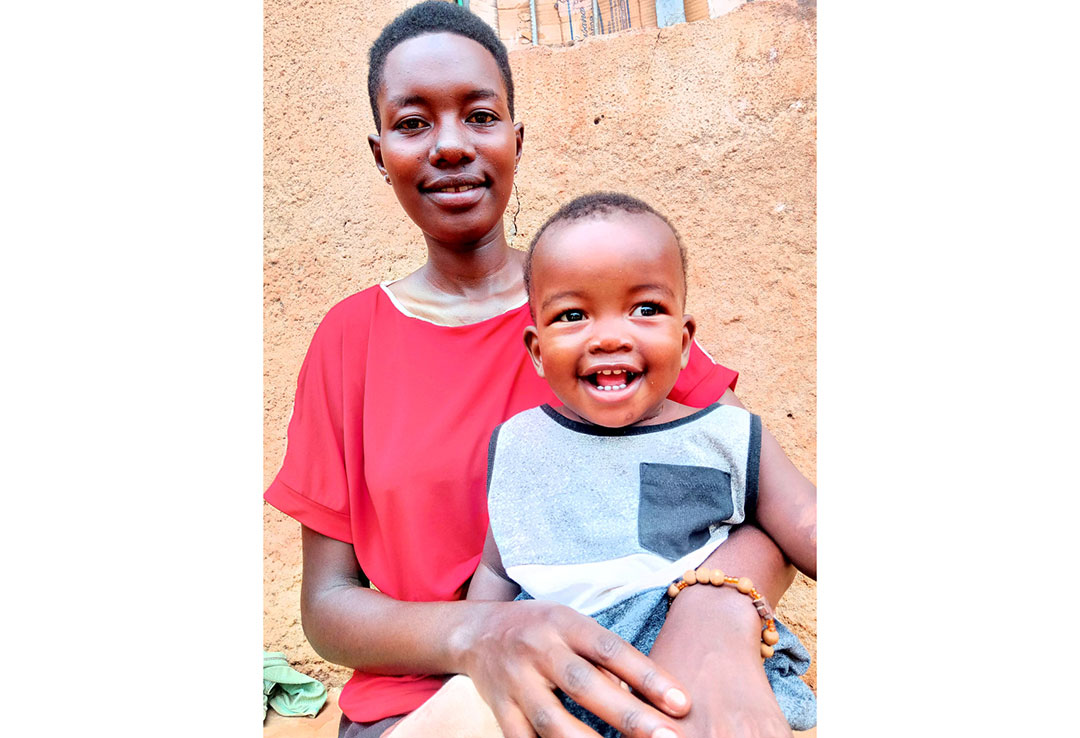
Credit: Merida Uwase
"We started by contributing 2,000 [Rwandan] francs each and have grown to the point where new members now contribute 20,000 francs to join," she says.
The profits they make are shared as dividends among the members who use them for individual development. Using the money from the cooperative, she bought goats, which she sold later and bought a cow.
Leveraging technology
In recent years, CHWs have begun using technology to improve their services, and reduce the load on their own shoulders.
They now report patients' data using a system called RapidSMS, a USSD-based system that allows them to share information with relevant institutions across the country via basic cell phones.
"When we treat a child or monitor a pregnant mother, we log the information on our phones and send it immediately," Nikuze explains.
Community trust and gratitude
Joyce Mugabekazi, a mother from Rusera village, is one of many residents who appreciate the work of CHWs.
"They should be respected. A CHW advised me on how to care for my child, who used to fall sick of diarrhoea often. Now, my child is healthy," she says.
Another mother, Merida Uwase, 21, says CHWs have been a blessing for people especially those who can't afford to travel to the health centre due to transport constraints.
“Sometimes we don’t have money for transport from our homes to the health centre. But when our children get sick, the CHWs come and visit our homes and treat them. They also give us advice regarding how to take care of our babies, educate us about establishing vegetable gardens,” she says.
